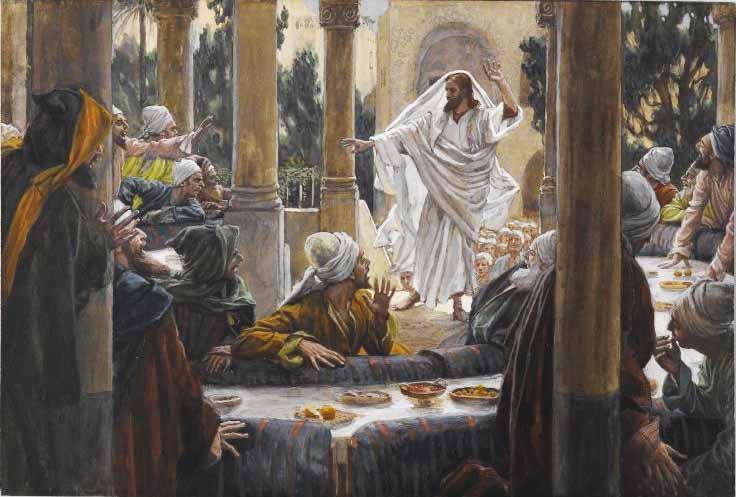Podcast: Play in new window | Download
Subscribe: Spotify | Email | RSS
 What if the official god of your theology isn’t the one who actually gets his way in your life? In this episode I interact with some commentary on the Wheaton “one god” controversy by philosophers Dr. Edward Feser and Dr. Lydia McGrew, with an assist from John and Paul.
What if the official god of your theology isn’t the one who actually gets his way in your life? In this episode I interact with some commentary on the Wheaton “one god” controversy by philosophers Dr. Edward Feser and Dr. Lydia McGrew, with an assist from John and Paul.
To give you a flavor for their comments, in part Dr. Feser says
…one of the things some readers get hung up on, though, is the word “worship.” They seem to think that if you say that Christians and Muslims worship the same God, then you are insinuating that Christianity and Islam are both salvific, or that the differences between Christian and Muslim theology and ethics are not very important, or something along those lines. But none of that follows at all.
And Dr. Lydia McGrew comments,
It isn’t enough that Muslims think the Being who revealed himself to Abraham also spoke to Mohammad. Truth matters, and since that isn’t true, there is no real historical connection—in the acts of God himself—between the Allah of Islam and the one true God. But there is a real historical connection in the acts of God between Judaism and Christianity.
If I understand her, her answer is that no, Christians and Muslims do not worship the same god, on any interpretation of the question I discuss here. In contrast, Dr. Feser argues that Christians and Muslims are referring to and so in a sense worshiping the same god, but this isn’t to say that their theologies are the same, or nearly so, or that both traditions of worship equally well please God and result in salvation.
I’m on Dr. Feser’s side, but both his and her articles stimulated me to think about the New Testament distinction between one’s official god and one’s actual or functional god. That’s what this episode is about.
You can also listen to this episode on Stitcher or iTunes (please subscribe, rate, and review us in either or both – directions here). It is also available on YouTube (you can subscribe here).
You can support the trinities podcast by ordering anything through Amazon.com after clicking through one of our links. We get a small % of your purchase, even though your price is not increased. (If you see “trinities” in you url while at Amazon, then we’ll get it.)
Links for this episode:
- previous trinities posts on the “same god” controversy
- members of the Evangelical Missiological Society weigh in on the one god controversy
- Dr. Ed Feser, “Islam, Christianity, and liberalism again (Updated)“
- Dr. Lydia McGrew
- podcast 122 – 7 Christians on 4 questions in the “same god” controversy
- Christian Identity movements

- 2 Corinthians 4:4
- biblical unitarian websites
- Today’s thinking music is Ophelia’s Song by grapes.

Great series!
One question nobody seemed to ask, in light of Vallicella’s claim about the importance of reference throughout the podcast series, is, “What is the Bible’s theory of reference about God?”
Seems to me it is both Descriptive and Causal. That it is Causal seems rather obvious.
That it is Descriptive can be found in that over 100 times, by my count, the God of the OT is the God “who brought you out of the land of Egypt”. And in the NT, the trend continues. Paul says things like God is the God “who gives us victory through our Lord Jesus Christ”.
Given this, it seems that Muslims don’t worship the same God. They do not believe in the God that contains the descriptive content that the NT associates with the word “God”.
Even if they get the Causal reference right (and some of the OT’s Descriptive reference), they miss most of the NT’s Descriptive reference and so do not make a successful reference. If a successful reference isn’t made, then they aren’t worshipping the same God.
Just a thought, anyway. (Teaching a lesson on Sunday about this same God question – should be fun!)
Dr. McGrew’s problem With the Whole “what about Jews” question doesn’t work at all. The fact that the historic Jews didn’t specifically reject the Trinity doesn’t change the fact that they worshiped a Unitarian God, of course the Jews didn’t specifically reject the idea that God revelead the Koran to Mohammad? Does that mean that they worship the same God as Muslims becuase Mohammad worshiped the God of Abraham and Moses? The Logic is the same.
The Jews, as soon as they heard the Trinity, rejected it at impossible, not as just not true, some even Call it idolatry.
Dr. McGrew dismisses the historic argument when Applied to muslims, but somehow thinks it follows when it comes to Muslims, you can’t have it both ways.
This has been a really interesting series, Dale. Thanks for working through the questions with such clarity. Your dialog with the Maverick Philosopher was great.
Your observation about the distinction between “official god” and “actual god” is insightful, and I hadn’t considered it. It adds an interesting dimension to the problem, since by the same token Christians (or, for that matter, Muslims) might well not be serving the same God as each other. That could apply all the way down to Christians who are members of the same church.
I’m thinking that the question “Do Christians and Muslims worship the same God?” can’t be answered at all without unpacking a lot of context.
Two technical comments: 1) The podcast via iTunes has been working again for me for the past couple of episodes. Thanks for fixing that! 2) Contra your Kiwi commenter, I enjoy the “linguistically diverse” readings of Scripture. It’s a pleasant change from “same old, same old”, and I often find that a different accent causes me to listen to a reading in a different way.
Comments are closed.